Our Blog
Check out our innovative pump solutions and industry insights to see what's new in the pumping industry. Stay up to date with the latest trends and news in the world of pumping technology by following our pumping technology blog.
- Home
- Blog
The Ultimate Guide to Choosing the Right Deep Well Water Pump for Your Needs
Selecting the appropriate deep well water pump is crucial for ensuring optimal water supply and efficiency in various applications, whether for agricultural, residential, or industrial uses. According to the U.S. Department of Agriculture, approximately 15% of the nation's farms rely on deep well systems to secure their water needs, underlining the significance of choosing the right equipment for sustained productivity. Furthermore, the market for deep well water pumps is projected to grow at a CAGR of 4.5% through 2025, according to a report by MarketsandMarkets, driven by increasing agricultural activities and the need for effective irrigation systems. Understanding the various types and functionalities of deep well water pumps is vital for users to make informed decisions tailored to their specific requirements, ensuring both efficiency and cost-effectiveness in their water management systems.
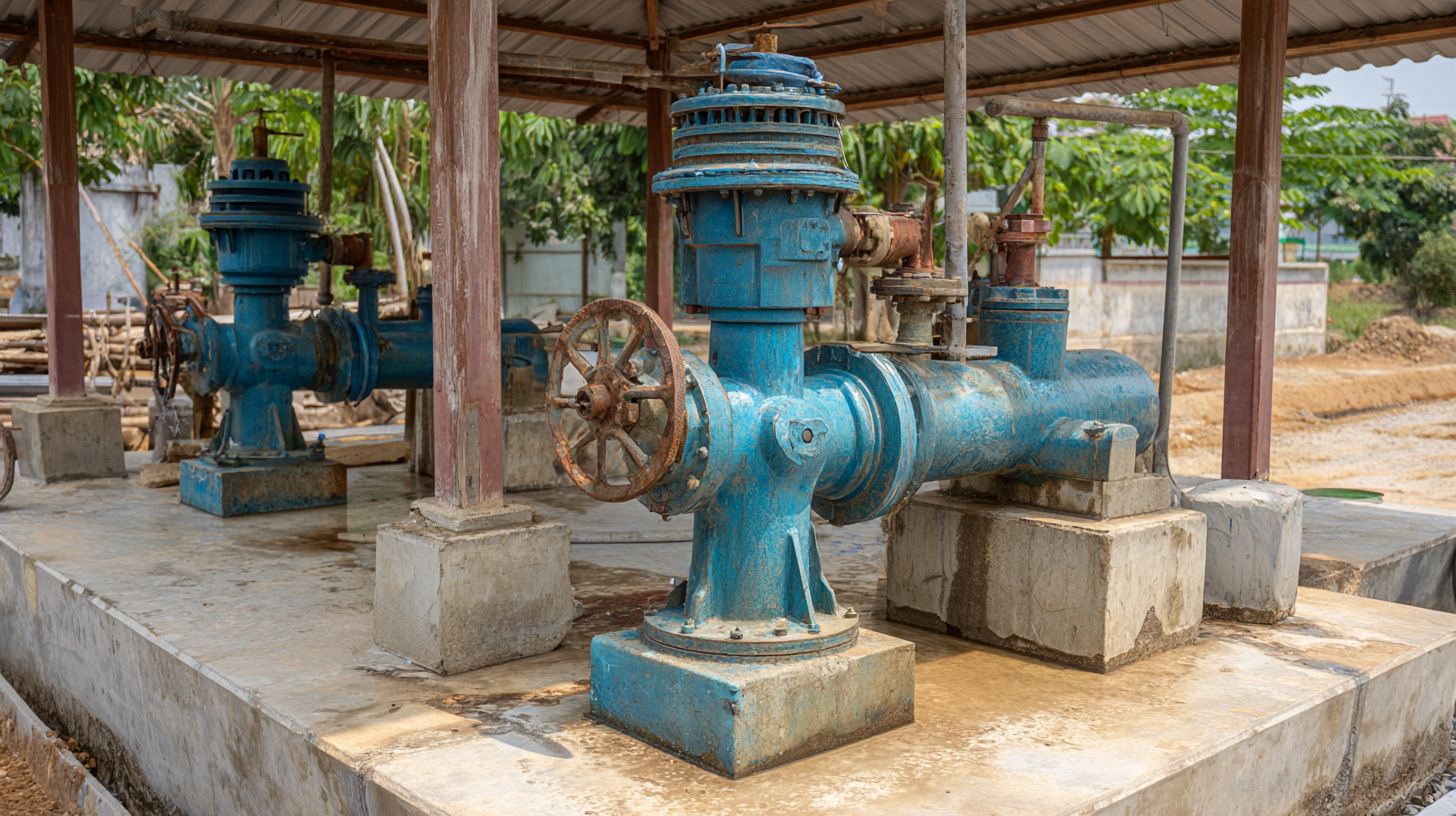
Understanding Deep Well Water Pumps: Types and Their Applications
When selecting a deep well water pump, understanding the different types available and their applications is vital for optimal performance. Deep well pumps can be categorized into submersible pumps, jet pumps, and diaphragm pumps. According to the Water Systems Council, submersible pumps are ideal for deeper wells, functioning efficiently in depths exceeding 25 feet. These pumps operate underwater, pushing water to the surface using a multi-stage impeller system, making them highly effective for residential and agricultural applications.
Jet pumps, on the other hand, are suitable for shallower wells, typically those less than 25 feet deep. They utilize a combination of air and water pressure to draw water up from wells, making them ideal for households with lighter water demands. The U.S. Geological Survey reports that groundwater accounts for nearly 43% of America's drinking water supply, highlighting the importance of having the right pump type to meet individual needs. Understanding these distinctions ensures users select the appropriate pump, optimizing water retrieval while minimizing energy costs and maintenance.
Key Factors to Consider When Choosing a Deep Well Water Pump
When selecting a deep well water pump, several key factors must be considered to ensure the pump meets your specific needs. Firstly, it's essential to understand the well's depth and diameter. According to the U.S. Geological Survey, wells can range significantly in depth, often exceeding 100 feet. Thus, selecting a pump capable of reaching the required depth while maintaining adequate flow rates is critical. A submersible pump, for example, is typically recommended for deeper wells as they can efficiently operate at considerable depths compared to surface pumps.
Another crucial factor is the pump's flow rate and pressure capability. The Water Systems Council reports that the average flow rate for residential deep wells should ideally be around 5 to 10 gallons per minute (GPM) based on household demands. Assessing the water requirements of your household, coupled with understanding peak demand times, will guide you in selecting a pump with sufficient flow capacity. Additionally, consider the pump's energy efficiency; selecting a model that meets Energy Star standards can aid in reducing overall operational costs, ultimately enhancing the system's financial viability in the long run.
How to Calculate the Required Flow Rate and Depth for Your Well
When selecting the right deep well water pump for your needs, understanding how to calculate the required flow rate and the depth of your well is critical. The flow rate is primarily determined by your household needs, agricultural requirements, or industrial usage. A typical household might require about 10-25 gallons per minute (GPM), while agricultural applications can demand much higher rates, potentially exceeding 100 GPM. It is essential to assess your water usage patterns accurately to ensure that the pump can meet these demands consistently.
Moreover, the depth of the well significantly influences the type of pump required. With advancements in drilling technology, such as the recent achievement of drilling depths exceeding 10,000 meters, knowing the exact depth is paramount for selecting a pump that can operate efficiently at that level. For instance, submersible pumps are ideal for deeper wells as they can push water from great depths to the surface. According to industry reports, the operational efficiency of pumps can drop significantly if the depth exceeds their design specifications, leading to increased energy consumption and maintenance costs. Therefore, accurate calculations and considerations of both flow rate and well depth are essential steps in ensuring optimal performance from your deep well water pump.
The Ultimate Guide to Choosing the Right Deep Well Water Pump for Your Needs
| Pump Type | Max Depth (ft) | Flow Rate (GPM) | Power Source | Efficiency Rating |
|---|---|---|---|---|
| Submersible Pump | 300 | 15 | Electric | 85% |
| Jet Pump | 150 | 10 | Gasoline | 75% |
| Hand-operated Pump | 100 | 2 | Manual | N/A |
| Solar-powered Pump | 250 | 20 | Solar | 90% |
Essential Features to Look for in a Deep Well Water Pump
When choosing a deep well water pump, several essential features should guide your decision. Firstly, consider the pump's depth and lift capacity. This indicates how deep the pump can extract water effectively; you need a model that can match the depth of your well while providing adequate water pressure at the surface. Pumps with an appropriate horsepower rating are also crucial, as they determine the flow rate and the volume of water that can be pumped within a specific timeframe. Look for pumps that offer adjustable performance settings to cater to varying water demands.
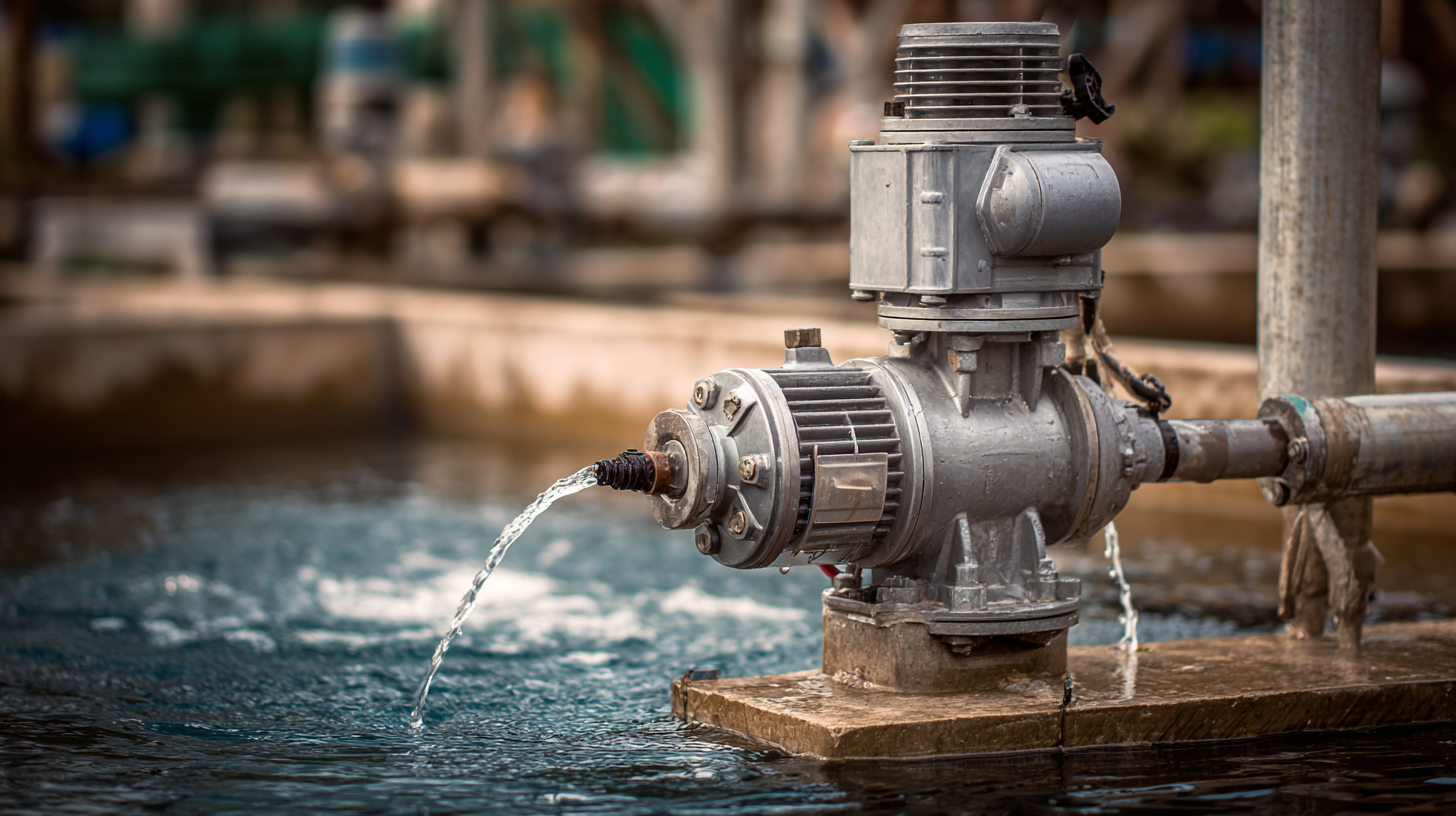
Additionally, durability and material quality are significant factors. Deep well pumps are often exposed to harsh conditions, so selecting models made from corrosion-resistant materials, like stainless steel, will enhance their longevity and reliability. Motor efficiency cannot be overlooked either; energy-efficient pumps will save you on electricity bills while ensuring sustainable operation. Finally, ease of installation and maintenance plays a vital role; a user-friendly pump design with accessible components makes routine checks and repairs much simpler, ensuring your system runs smoothly for years to come.
Maintenance Tips to Extend the Lifespan of Your Deep Well Water Pump
Maintaining your deep well water pump is crucial for ensuring its longevity and efficiency. According to the Water Systems Council, a well-maintained pump can last up to 15 years, while neglect can significantly shorten its lifespan. Regular maintenance not only prevents unexpected repairs but also helps maintain optimal performance and water quality.
Tip 1: Regularly check the pressure switch and replace it if necessary. A malfunctioning pressure switch can lead to excessive cycling, which adds stress to the pump and reduces its lifespan. Inspections every six months can help catch any issues early.
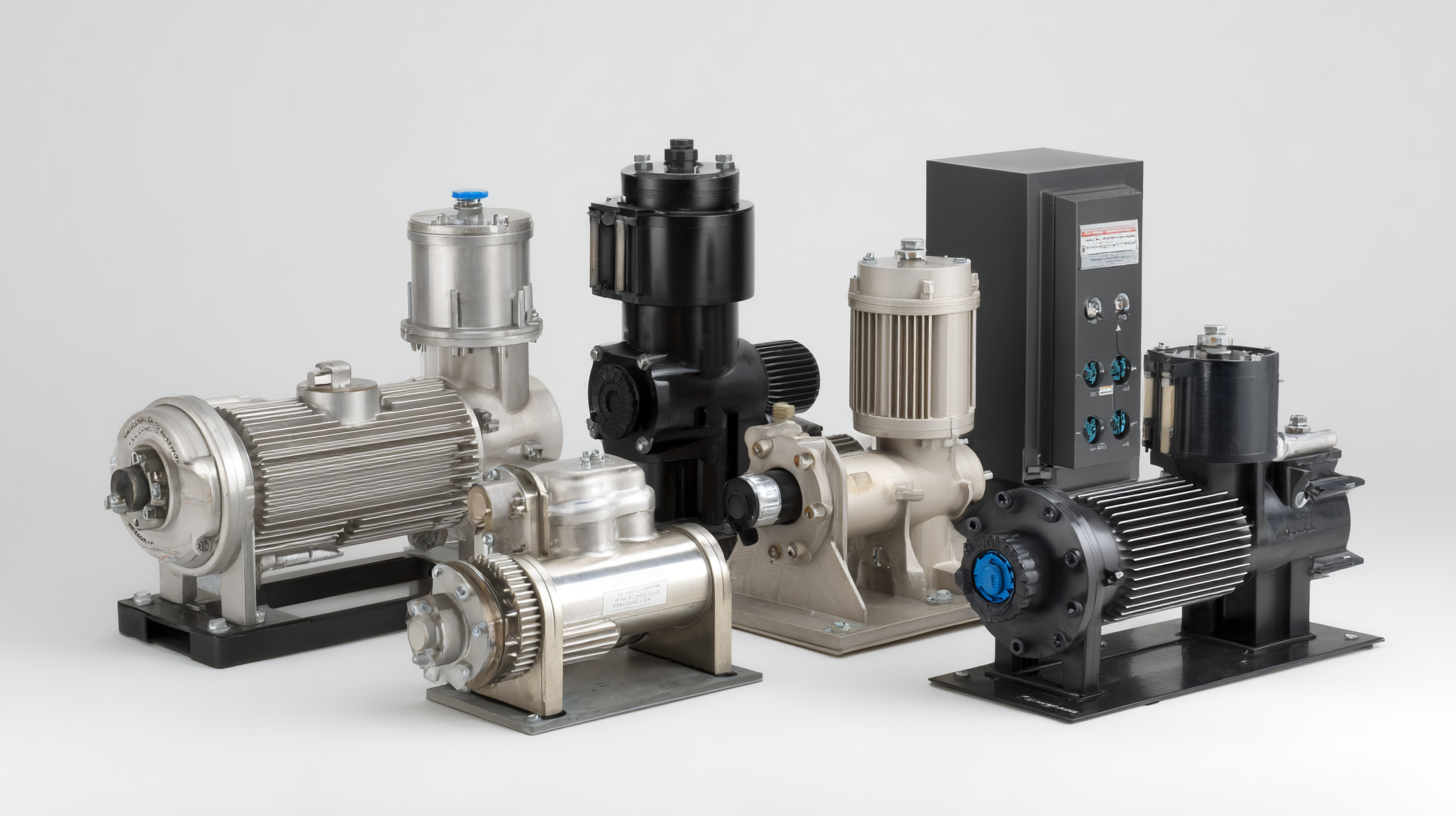 Another essential aspect of maintenance is monitoring the water level in your well. The Groundwater Protection Council recommends that homeowners test their well water annually. Maintaining the appropriate water levels ensures that the pump isn't running dry, which can cause overheating and damage.
Another essential aspect of maintenance is monitoring the water level in your well. The Groundwater Protection Council recommends that homeowners test their well water annually. Maintaining the appropriate water levels ensures that the pump isn't running dry, which can cause overheating and damage.
Tip 2: Schedule routine inspections and consider professional maintenance every few years. This includes cleaning the pump's screen and checking for sediment buildup, which can impede efficiency and lead to costly repairs. Adopting these practices can help ensure that your deep well water pump serves you well for many years to come.
Related Posts
-

Exploring the Efficiency of Deep Well Pumps in Sustainable Agriculture Practices
-
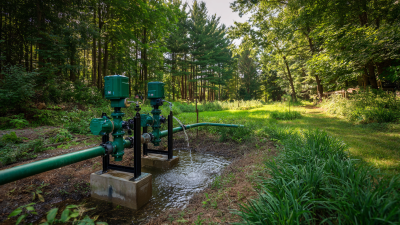
Top 5 Benefits of Upgrading Your Well Pumps for Improved Water Quality and Efficiency
-
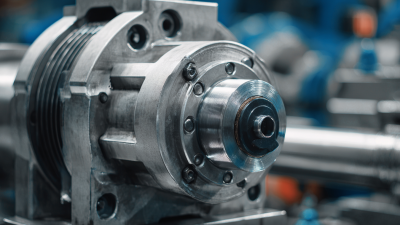
Understanding the Innovations of Pump Manufacturers in Modern Industrial Applications
-
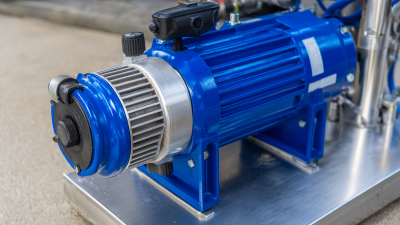
Understanding the Benefits of Using a 1 Hp Well Pump for Efficient Water Supply
-
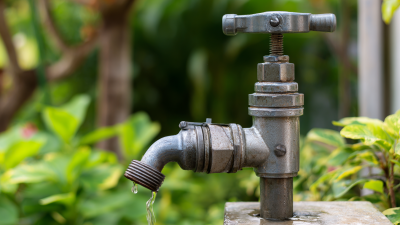
Essential Guide to Choosing the Perfect Well Water Pump for Your Home Needs
-
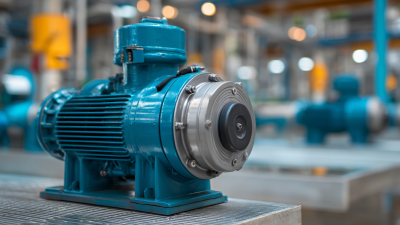
Unlocking Efficiency: The Ultimate Guide to Choosing the Right Motor Pump for Your Needs

